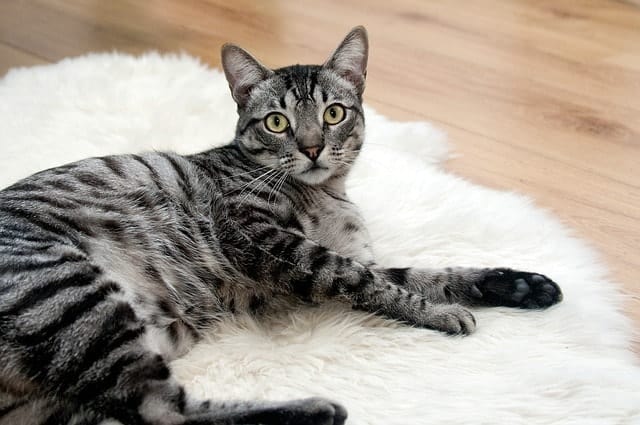Feline Heart Problems
Hypertrophic Cardiomyopathy (HCM) is the most common heart disease in cats affecting heart muscle function so that it can not pump blood effectively. Blood circulation is impaired and the body is deprived of oxygen and vital nutrients. HCM is inherited in certain cat breeds including the Maine Coon and American Short Hair (and in people). Affected cats are usually 2 ½ to 5 years old.
CAUSES
* The cause of primary (true) HCM is a genetic mutation in the heart muscle cell itself which interferes with its ability to contract and pump blood.
* Certain problems can cause HCM as a secondary problem such as Hyperthyroidism, Hypertension and Chronic Kidney Disease. In these cases when the primary problem is treated, the HCM usually resolves.
Other types of Heart Disease occasionally occur in cats.
* Heartworm Disease can result in heart failure and sudden death.
* Historically Taurine deficient diets (cats fed dog food) caused another form of (dilated) Cardiomyopathy. Today this is rare.
SIGNS
* Signs vary, there may be no signs at all,
* Some cats act shy and hide a lot
* In other cats signs relate to the severity of heart failure.
* Breathing difficulty of various degrees along with
* Lethargy, appetite loss and fainting may occur.
* Paralysis of hind legs occurs if blood clots form.
* Sudden death may occur.
WHAT YOU AND YOUR VET CAN DO
Hypertrophic Cardiomyopathy diagnostics include
* Physical exam- abnormally fast heart rate and /or abnormal heart rhythms are heard with stethoscope.
* Blood tests detect secondary causes like thyroid disease and Hypertension
* X-rays allow visualization of heart size and shape.
* An Echocardiogram is an ultra sound of the heart and allows evaluation of the physical structure and function of the heart. This is the best diagnostic tool available.
FACT: An Electrocardiogram (EGG) indicates the electrical conduction of the heart.
TREATMENT OF Hypertrophic Cardiomyopathy (HCM)
There is no cure for primary HCM. Therapy is geared to help the heart function more efficiently, prevent further heart muscle damage and decrease the risk of blood clot formation.
Medication may include any or all of the four D’s of Heart Therapy.
1. Diet – low sodium (decrease excess fluid accumulation).
2. Diuretic – like lasix decrease fluid accumulation in the lungs.
3. Dilators – dilates blood vessels which helps the heart to pump blood more easily and more effectively.
4. Digitalis – decreases the heart rate which lets the heart fill with more blood and pump more blood through out the body.
COMPLEMENTARY THERAPY
Medications geared to support heart muscle function are helpful in cats with heart failure.
* Use: Low Sodium Diet (low salt- salt substitute) to decrease fluid retention.
* Omega-3 Fatty Acids (found in Fish oil, Flaxseed Oil) 1/8 Tsp in meal
* Coenzyme Q10 – 10 milligrams daily in meals supports heart muscle function
* Antioxidant Vitamin A – 10,000 Iu (international units) weekly in meals
* Vitamin E – 400 Iu (international units) per week
* Vitamin C – 250 milligrams of powder 3 times daily
HERBAL THERAPY
* Parsley Tea – add 1 Teaspoon liquid to meals. This acts as a diuretic which increases fluid loss through urination and may lower dose of prescribed diuretics like Lasix.
Parsley Tea Recipe: Add a few sprigs of parsley to boiling water. Allow to stand for 10 minutes. Strain and allow to cool. Pour 1 Tablespoon of the tea over the cat’s food.
* Dill Seed Tea – supplies minerals
NOTE: Blood Clots are a sign of severe heart failure and are a true life and death emergency. They tend to recur and are very painful. Few cats survive more than a few months
Prognosis: Maine Coons usually die at a young age. American Short Hairs live for several years as do several other cats.









